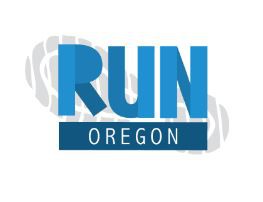 Oh the joys of being a runner! We can eat what we want, and then just run off all the calories, right?! Super easy!
Oh the joys of being a runner! We can eat what we want, and then just run off all the calories, right?! Super easy!
Yeah. Not the case. Maybe for a select minority of you runners. But most of us, regardless of weekly mileage or race distances ran, we can’t just eat anything we lay our hungry eyes on. I found this out the hard way, of sorts. For the 2015 race year, I participated in a myriad of long distance events (marathon and 50K ultra), and participated in race nearly every weekend. It was epic, as I was running and racing so much that I literally could eat all I wanted and not budge much with the weight.

Ring in 2016! After my “epic” running and racing in 2015, and after consulting with many people in my life about health, being able to run well into my golden years (80+), and other things … it was decided for 2016 I needed to give my body a rest on the distance-spectrum of the running scene. This year, I have vowed to run nothing further than a half-marathon, and only do those occasionally.
This was a sobering realization that I was no longer in my 20s. And another sobering fact came with this — that I couldn’t just “eat and run” anymore. My pants were shrinking! Darn clothes dryer!
No, it wasn’t the clothes dryer. It was the combination of “aging” and running less. So sad. Over the last several months, I have come to terms with one very important thing: “Jessica, you need to run more and eat less.” Well, I’d at least give it a shot! But what is the ideal weight? BMI? Well, that arguably hasn’t been reliable, especially due to muscle mass considerations. And just plain weight, that humbling number on the scale, isn’t necessarily helpful, either (thanks to my doctors for pointing this out to me). Dress size is possibly a good goal – but you can be skinny and have a startlingly high body fat percentage.
What are we to do?! I scoured the internet reading peer-reviewed medical journals, running magazine articles, news  reports from prominent “TV doctors”, and just asked around to my dear friends in our wonderful running community. No one had the golden ticket I needed.
reports from prominent “TV doctors”, and just asked around to my dear friends in our wonderful running community. No one had the golden ticket I needed.
One day, while searching on the internet for a completely unrelated topic, I saw an advertisement for a book called “Racing Weight: How to Get Lean for Peak Performance” by Matt Fitzgerald. The cover showed two muscular, lean, “ideal” looking running bodies – one male and one female. It caught my attention. I wanted to learn more.
During my search, I came across an excellent website that literally blew my mind. And that isn’t easy to accomplish – I’m a critic (though I call it perfectionist) to the core (just ask my Run Oregon family). The site is http://racingweight.com, and it features the one and only Matt Fitzgerald, who wrote the book that mysteriously showed up on my screen! I immediately clicked on the link to find my ideal racing weight using a short online questionnaire.
Granted, some of the questions are subjective – and it was tricky to pick just one. For example, one of the questions asks how close you are to peak fitness. Your available choices are “far from peak fitness”, “fairly close to peak fitness”, or “close to or at peak fitness”.
 My “tactic” for filling out the questionnaire was to fill it out using my initial gut instinct. Then, I could adjust my answers to hone in on the “range” that was presented. For me, depending on my answers to the last three questions my ideal racing weight and body fat percentage only move 3 pounds and 1% for body fat. Not too much! And, I am happy to report, the numbers provided did not surprise me, and they are attainable (I’m pretty sure at least).
My “tactic” for filling out the questionnaire was to fill it out using my initial gut instinct. Then, I could adjust my answers to hone in on the “range” that was presented. For me, depending on my answers to the last three questions my ideal racing weight and body fat percentage only move 3 pounds and 1% for body fat. Not too much! And, I am happy to report, the numbers provided did not surprise me, and they are attainable (I’m pretty sure at least).
So Jessica, what IS your ideal racing weight? At 5’2″, my results showed an ideal racing weight of 120 pounds and 19% body fat.
As of this writing, I am actively going after achieving my ideal race weight provided by this excellent tool. Next on my book purchase list will be to make sure to read the book “Racing Weight: How to Get Lean for Peak Performance” by Matt Fitzgerald. I’ll keep you posted as to if I can attain the weight and body fat percentage provided, and if it really does reflect my ideal racing weight! Stay tuned!


